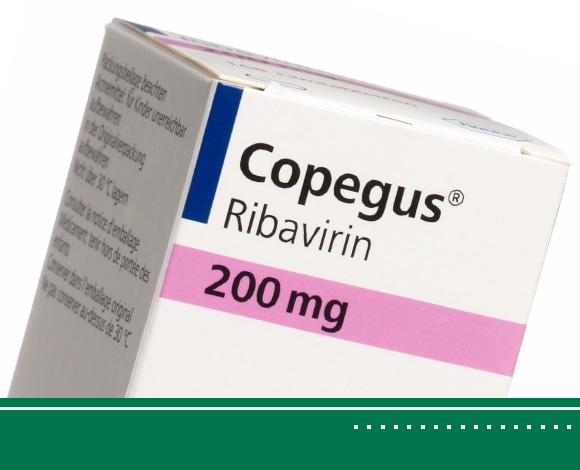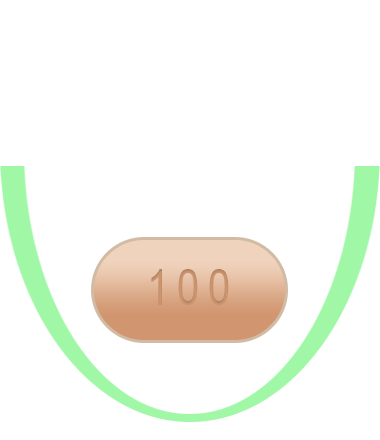Copegus (100 mg)
The generic name of Copegus is Ribavirin. Copegus is used to treat chronic hepatitis C in some patients. It may also be used for other medical conditions as advised by your doctor. It is an antiviral drug. The exact working of this medicine is not known yet.
Composition
Cpegus is a nucleoside analogue exhibiting antiviral properties. The empirical formula of ribavirin is C8H12N4O5 with the molecular weight of 244.2 g/mol. Ribavirin is a white powder which is little soluble in anhydrous alcohol and soluble in water.
Uses
Copegus combined with pegasys is indicated to treat the patients suffering from chronic hepatitis C virus infections.
How to Use
This medicine should be taken with meal. It is important that Copegus should never be taken as monotherapy. It should be given along with pegasys. Use this medicine as instructed by your pharmacist or doctor. It is recommended to drink plenty of fluids during the intake of this medicine. To gain the maximum benefit from Copegus, take it on a regular time. It will be easy for you to remember if you take Copegus at same time every day. Even if you feel good, take the complete dosage of Copegus. Avoid any missed doses.
Contraindications
Copegus may result in blurred vision, dizziness or drowsiness. These aftereffects may worsen if it is taken with alcohol or some other drugs. Caution should be exercised while using Copegus. Do not operate machines or drive while taking this medicine. Do not drink beer, wine, liquor or any kind of alcohol as it may worsen the liver disorder. Copegus is contraindicated in patients who are hypersensitive to ribavirin or any other inactive ingredients of Copegus. Do not take Copegus if you have some blood diseases like sickle cell anemia, hemolytic anemia, thalassemia major; severe liver dysfunction; autoimmune hepatitis, history of serious heart disease which is uncontrolled and pancreatitis- inflammation of pancreas. Do not take didanosine while consuming Copegus. Let your doctor know if you have a history of diabetes, hypertension, cancer, blood disorders, pancreatic problems, lung disorders, sarcoidosis, thyroid problems, HIV infection, psoriasis or other immune system disorders.

Side Effects
All medicines may show some side-effects, but majority of patients have no, or very less side effects. Inform your doctor if these common side effects worsen or cause trouble:
- Diarrhea
- Dry mouth
- Dizziness
- Hair loss
- Dry skin
- Nausea
- Headache
- Vomiting
- Nausea
- Tiredness
- Upset stomach
- Fatigue
- Itching
- Unusual hoarseness
- Bloody stools
- Chest pain
- Stomach bloating
- Swollen face/mouth/tongue
- Chest pain
- Menstrual disorders
- Depression
- Mood swings
- Fainting
- Irregular heartbeat
- Dark urine
- Severe headache
- Symptoms of pancreatitis
- Unusual bleeding
Pregnancy and Copegus
Copegus may be responsible for death of fetus and birth defects. Thus it is highly contraindicated in pregnant women. It is uncertain whether this drug is present in the maternal milk or not. Avoid breast-feeding during the intake of Copegus.
